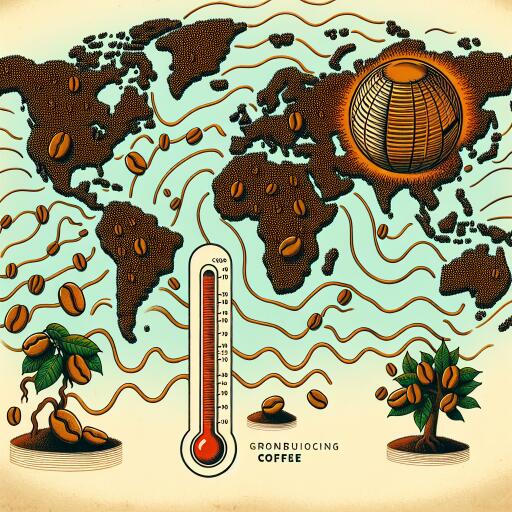
Is Coffee Production Across Globe Threatened by Heat?
As the Earth’s temperature continues to climb, global coffee production faces significant challenges. The situation is particularly dire in regions that once thrived under optimal climatic conditions, with India standing as the sixth-largest coffee producer in the world. Here, high temperatures, excessive rainfall, and landslides are increasingly common, negatively impacting coffee yields.
A comprehensive study conducted over the past forty years reveals that global warming has led to decreased coffee yields. The research points out a troubling trend: rising global temperatures pose ongoing systemic threats to coffee production worldwide. To counter these alarming effects, developing coffee varieties that can withstand heat is essential alongside implementing robust measures to curb global warming.
Between 1980 and 2020, scientists examined climatic influences—such as temperature, rainfall, and humidity—across 12 leading coffee-producing nations. Their findings indicate a growing frequency of climatic extremes, like excessively high temperatures, rendering many regions unsuitable for coffee cultivation. Remarkably, five of the past six most severe years for coffee production occurred between 2010 and 2020.
The two predominant coffee varieties, arabica and robusta, flourish best at certain temperature ranges. Arabica grows well in conditions ranging from 18 to 22 degrees Celsius, while robusta thrives between 22 to 28 degrees Celsius. The study revealed that, historically, coffee-growing areas have been more vulnerable to colder temperatures. However, the current climate is marked by oppressive heat in all regions, with most coffee-producing zones rarely experiencing cooler growing seasons.
With projections indicating a continued increase in tropical temperatures, coffee production can brace for relentless systemic shocks driven by synchronized crop failures across the globe.
Previous studies warn that climate change might halve the land available for coffee cultivation by 2050. Coupled with potential crop failures due to heat stress, this scenario could lead to rising coffee prices if no adequate reserves are maintained.
In-depth analysis also highlights the influence of significant climate drivers, such as the El Nino-Southern Oscillation (ENSO), a major year-to-year climate fluctuation. Despite ENSO’s global impacts, its effect on southern Brazil—the largest arabica bean producer—appears minimal. In fact, major arabica-producing regions in southeastern Brazil and southwestern Ethiopia are among the least vulnerable to climatic threats.
Globally, the top 12 coffee-producing countries account for approximately 90% of production. India, trailing Brazil, Vietnam, Indonesia, Colombia, and Honduras, holds a significant position within this context. More than 70% of its coffee is destined for export markets, with the bulk being robusta and a smaller percentage as arabica.
Concerns arise from projections made by the Coffee Board of India, which anticipates a notable drop in coffee output for the 2024-25 season. This expected downturn is attributed to plant and berry losses caused by the intensified climatic challenges in India’s key coffee-growing areas.





Leave a Reply